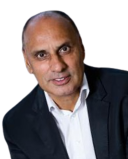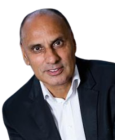Motivation
How Do You Want to Feel Along the Way?
Considering the journey is as important as the goals you set.
Posted October 9, 2023 Reviewed by Jessica Schrader
Key points
- When we face forward in our career, we often only consider what we can do to increase our chances of success.
- Being positive drives success, so goal-setting should prioritise how we feel on the way to achieving our aims.
- A simple three-part process can help you be more successful and enjoy the journey to success more.
I believe I can safely say that most of us have returned from holidays wanting to improve ourselves in many ways and are determined not to return to the stress levels we had before we went away. The leaders I work with often also have a myriad of personal goals they’ve been reflecting on and formulating as well, and come back to work with a renewed resolve around achieving them.
Goal-setting is a tricky thing. Some people swear that certain microactions are the way to go about them: Write it down. Set a deadline. Visualise the endpoint. Work out what you have to do and get going. This is the standard fare of all goal-focused coaching.
All these things have undoubtedly been shown to increase goal success, but after we have gone through this type of process, I then ask my clients something simpler that catches virtually all of them by surprise. I ask them, "How do you want to feel along the way?"

Picture this: You’re setting off in the car on that coast trip you and your friends have been planning for months. You know what time you need to get to the Airbnb and you know the route you have to take to get there (or your GPS does). You’re buckled in and your friend asks, "What do you want to listen to?" before the other asks, "Where should we stop for lunch?" Now you might say you want to listen to Bruce Springsteen and really feel the excitement of the open road, then stop for a burger and fries to embrace the inner child that loves being with these friends. You might also debate which is the more enjoyable route, the fast one on big highways or a more scenic route.
Whatever you choose, you’re setting an intention to experience the journey in a certain way, hopefully one that is enjoyable to you. You’re valuing the journey as part of the whole trip.
In his book, Happiness by Design, Professor Paul Dolan talks about the "Pleasure-Purpose Principle" being the necessary balancing act for overall happiness—that is, the balance of good emotions with purposeful intention. They are an unbeatable pair as we know that being happy drives success and feeling a sense of purpose makes us happy.
I apply Dolan’s thinking to goal-setting by reminding my clients that while we must give time to thinking about how something will be achieved, we must also consider how we want to feel so that this expectation may frame the steps that come next.
This is firstly because the more we enjoy the process of working toward our goals, the more likely we are to stick to them and achieve success.
It is also because I believe that (99% of the time) when we design a goal, we are really setting two intentions. The first is to achieve it, and the second is to get closer to being happy or fulfilled. (Test this by continuing to ask yourself "why?" in response to your answers to why you want to get that promotion, earn more money, or lose more weight. The eventual answer will more often than not be "to be happy.")
So, why not start that now? The next time you are setting a new goal, think of the three A’s: Aim, Affect, and Actions.
- Aim: What is it that I want to achieve and why?
- Affect: How do I want to feel along the way?
- Actions: What are the steps that will allow me to feel this way while achieving my goal?
If you are like the majority of my clients who move through their working lives with a lot of stress and turbulence, this mindful goal-setting will be a lightbulb moment that revolutionises how you approach challenges. If you are like a few, it may even lead you to rethink your career.
Either way, I hope it gets you a little bit closer to where and how you want to be.
If you want to hear a bit more about extending this thinking to our journey throughout life and work, listen to my chat with Fiona Murden here.


